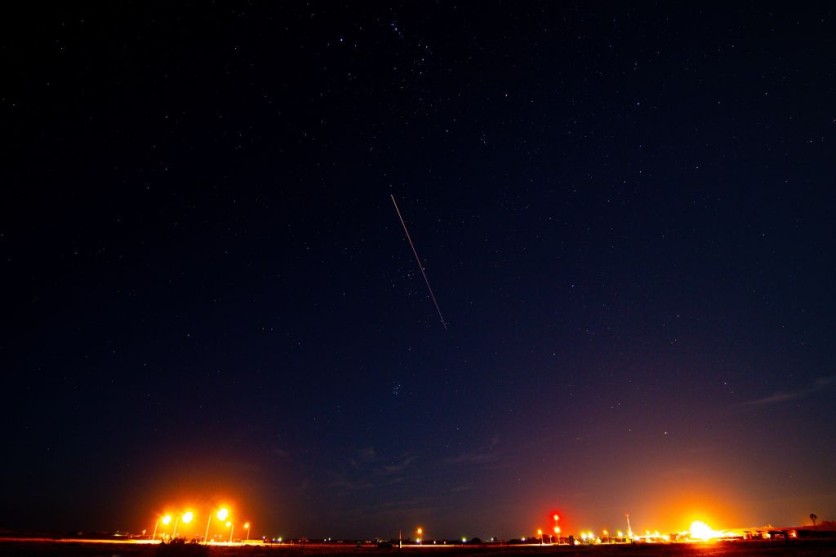
A booming noise from the atmosphere sent Pittsburgh residents into a panic frenzy on the day of celebrating New Year, and it's not just any ordinary sky rumble as it turned out to be a meteor explosion, according to NASA.
Meteor Explosion in Pittsburgh
NASA said that a meteor that exploded in the atmosphere on New Year's Day with a blast equivalent to 30 tons of TNT caused a loud explosion heard in western Pennsylvania.
For more details, NASA's Meteor Watch Facebook page reported that the loud booming sound was heard a few minutes before the clock strikes at 11:30 a.m. ET on the very first day of 2022. Now, for spectators wishing to see it up in the sky, unfortunately, the fireball would have been easily visible in the sky as it broke apart if it wasn't so cloudy.
Using data from a nearby infrasound station, NASA calculated the blast's energy from a crude estimate that it would have been about 100 times brighter than the full moon.
The blast wave from the meteor was registered at the infrasound station, and NASA helped estimate its given energy from there.
In an announcement, NASA reported, "If we make a reasonable assumption as to the meteor's speed (45,000 miles per hour), we can ballpark the object's size at about a yard in diameter, with a mass close to half a ton."
Prior to the report from NASA, an earthquake and thunder and lightning had initially been ruled out as possible causes of a loud boom and shook in Pittsburgh's South Hills suburb. Allegheny County's Twitter account relaid this on Saturday, Jan. 1, after receiving 911 reports during New Year's Day.
Allegheny County 9-1-1 has received reports of a loud boom, shaking in the South Hills and other reports. We have confirmed that there was no seismic activity and no thunder/lightning. At this point, we have no explanation for the reports, but agencies are continuing to look.
— Allegheny County (@Allegheny_Co) January 1, 2022
Moreover, there were reports of loud noises coming from South Hills and other areas, and residents said their homes were shaking. Allegheny County officials said they had verified that no seismic activity and thunder had occurred.
But why the loud boom? The sound of a sonic boom, similar to that of an explosion or thunderstorm, is generated when an object like a meteor or a supersonic aircraft, passes through the Earth's atmosphere incredibly faster than the speed of sound.
Scientists at NASA said air reacts like fluid when a supersonic object travels through it. During the expedition of these 'objects' through the air, molecular collisions cause a shock wave, which in return produces sonic booms or the loud boom the residents heard on Saturday.
Also Read : Japan Launches Mini-Satellite That Can Create Artificial Meteor Showers To Space | Tech Times
Should We Fear Meteor Explosions?
Although such circumstances are rare, meteor explosions are to be feared.
In 2013, the Chelyabinsk meteor taking the size of a six-story building, shook the grounds of Chelyabinsk, Russia. Reports say the impact is stronger than a nuclear explosion, and the meteor was so bright it momentarily outshone the sun.
Unlike the Pittsburgh meteor explosion, Chelyabinsk injured people and destroyed infrastructures.
On the other hand, NASA's DART mission will alter the motion or course of a potentially hazardous space object to prevent it from colliding with the Earth.
Related Article : NASA: DART Mission to Change Motion of Hazardous Asteroid? NASA Clarifies This Story | Tech Times
This article is owned by Tech Times
Written by Thea Felicity
ⓒ 2025 TECHTIMES.com All rights reserved. Do not reproduce without permission.




